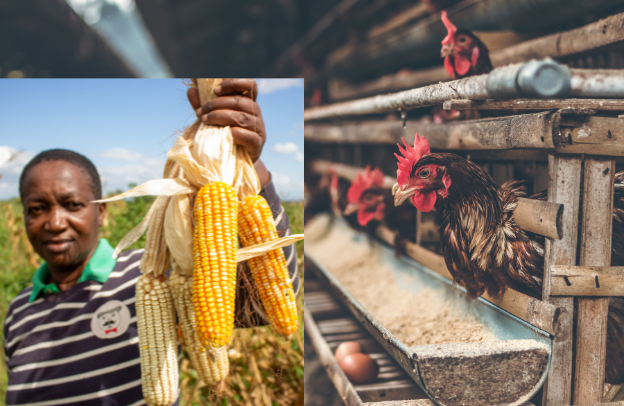The Roles Of The Youth In Agricultural Development

Amaka Ifeduba PhD | Contributor on Agribusiness Topics
In my previous article, I shed light on the pressing challenges facing agriculture in Jos, the city where I grew up. These challenges have not only slowed the region’s growth but have also held back our collective progress as a nation and as a continent. However, as we look toward the future, the youth hold the key to transforming agricultural development.
Want to learn more about storytelling? Start by downloading the first chapter of The Storytelling Mastery.
Their innovation, energy, and passion are the driving forces that can revolutionize the sector, overcoming these barriers and propelling us towards a prosperous and sustainable future.
It’s time to unlock the untapped potential of young people in agriculture, for they are the backbone of tomorrow’s success.
To make substantial progress, I believe the youth, who comprise a significant portion of our population, are crucial to driving this process. For example, Nigeria, the most populous black nation in the world, has over 220 million people, with approximately 70% of this population under the age of 30. If harnessed effectively, this youthful demographic can be powerful in revolutionizing our agricultural sector.
Achieving this requires a multifaceted approach, encompassing education, technology, access to resources, and a robust support system.
Educational Initiatives:
- Agricultural Education: Integrating agricultural science and entrepreneurship into school curriculums is essential to spark their interest and develop curiosity from a young age. Personally, I had no interest in agriculture until I was unexpectedly admitted to study plant sciences for my bachelor’s degree.
- Vocational Training: Offering specialized training programs on modern farming techniques, agribusiness, and sustainable practices is crucial.
- Scholarships and Grants: Providing financial support for youth pursuing higher education in agricultural fields is necessary to encourage and enable their involvement.
Access to Technology:
Digital Platforms: In today’s era, where most young people spend a substantial amount of time online, harnessing digital platforms to stimulate youth engagement is crucial.
The government should foster the creation and promotion of mobile applications and online platforms that offer up-to-date insights on weather forecasts, crop prices, and modern farming methods to encourage youth interest and participation.
Tech Hubs and Innovation Centers:
Creating innovation hubs and incubators can serve as vital catalysts for young entrepreneurs venturing into agriculture. These hubs should provide access to cutting-edge technology, offer mentorship, and encourage/reward innovation.
Access to Modern Farming Equipment and Tools: Ensuring access to modern farming equipment and tools is essential for enhancing agricultural productivity. Governments can facilitate this by offering subsidies, low-interest loans, or promoting cooperative ownership models.
See also Investing in Small and Medium-Scale Farming: A Sustainable Pathway to Economic Growth in Nigeria
By making these resources more accessible, young farmers can adopt efficient farming practices, boost yields, and contribute to the overall advancement of the agricultural industry.
3. Financial Support:
- Microfinance and Loans/Credits: The government should make microloans and credit facilities tailored for young farmers and agri-preneurs to start or expand their businesses more accessible.
- Investment Funds: Investment funds should be created that specifically target youth-led agricultural ventures.
- Crowdfunding Platforms: Encourage crowdfunding platforms to raise capital for innovative agricultural projects.
4. Mentorship and Networking:
- Mentorship Programs: Encourage programs where young farmers can be paired with experienced mentors who provide guidance, knowledge, and support.
- Agricultural Networks: Foster networks and associations where young agri-preneurs can share experiences, collaborate, and learn from each other.
- Workshops and Conferences: Organize events where youth can learn about the latest trends, technologies, and practices in agriculture.
5. Policy and Advocacy:
- Supportive Policies: Advocate for policies that support youth in agriculture, such as land reform, tax incentives, and subsidies for young farmers.
- Youth Representation: Ensure young people are represented in agricultural policy-making and discussions.
- Awareness Campaigns: Run campaigns to change perceptions about agriculture, highlighting it as a viable and profitable career path for youth.
6. Sustainable Practices:
- Climate-Smart Agriculture: Promote practices that improve resilience to climate change, such as conservation agriculture, agroforestry, and water-efficient farming techniques.
- Organic Farming: Encourage organic farming and sustainable agriculture practices to maintain soil health and biodiversity.
- Research and Development: Invest in R&D to develop new crops and farming methods that are more productive, resilient, and sustainable.
7. Market Access and Value Chains:
- Market Information Systems: Provide young farmers with access to market information to help them make informed decisions and improve profitability.
- Supply Chain Integration: Help youth integrate into value chains by connecting them with processors, distributors, and retailers.
- Export Opportunities: Facilitate access to international markets for youth-led agricultural products.
I believe that implementing these strategies will empower youth to become drivers of agricultural innovation in Africa, fostering economic growth, food security, and sustainable development. What do you think?
Want to learn more about storytelling? Start by downloading the first chapter of The Storytelling Mastery.




